Cohort VI Fellows
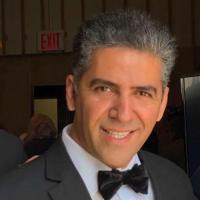
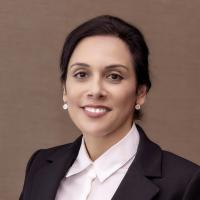
Dr. Shadnaz Asgari takes great pride in being part of CSULB, a leader in social mobility, student success and workforce preparation. With a multidisciplinary background in artificial intelligence and machine learning in healthcare, she holds a joint appointment in Computer Engineering and Computer Science department and Biomedical Engineering department, where she is a founding faculty member and served as its first full-term Chair. Her diverse expertise has shaped her leadership approach, emphasizing cross-disciplinary collaboration and innovation in both education and research.
Building on this foundation, Dr. Asgari embraces servant and transformative leadership, believing that true leadership lies in empowering others, fostering an inclusive environment, and ensuring all individuals have the opportunity to reach their full potential. Beyond technical expertise, she sees emotional intelligence, transparency, and accountability as essential qualities of an effective leader. By modeling the values and standards she expects from others, she cultivates a culture of trust and excellence. Her multidisciplinary experiences have deepened her appreciation for diverse perspectives, reinforcing her commitment to collaboration as a driving force behind meaningful advancements in research, education, and society.
This leadership philosophy guided her tenure as Chair of the Biomedical Engineering department (2018–2024), where she led its rapid expansion, quadrupling faculty, tripling student enrollment, and significantly enhancing diversity while upholding academic excellence. She spearheaded the ABET accreditation process, overseeing all major preparations and documentation before transitioning leadership ahead of the site visit. To support student career success, she strengthened mentorship programs, resulting in 56% of graduates securing industry positions and 30% pursuing graduate studies within nine months.
Dr. Asgari’s leadership has been recognized with the CSU Faculty Innovation and Leadership Award (FILA) and the CSU Biotechnology Andreoli Service Award, reflecting her dedication to equity, innovation, and student success. She remains committed to advancing educational excellence, expanding research opportunities, and fostering an inclusive academic environment where faculty, students and staff thrive.
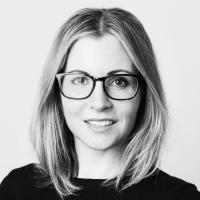
Dr. Emily Berquist is Professor of History at California State University, Long Beach, where she is Interim Director of the Faculty Center for Professional Development. Dr. Berquist’s leadership emphasizes building and enhancing spaces for equitable and inclusive faculty governance. She believes in listening to and honoring the experiences of our diverse faculty, promoting culturally sensitive dialogue among colleagues, and in working collaboratively across campus to create faculty-driven policies and initiatives that promote student success and greater inclusion for all members of our community. Her work is grounded in open curiosity, logical thinking, and a measured, diplomatic approach to problem solving and decision-making. She is inspired by the understanding that when faculty feel welcomed, heard, and cared for by their institution, they will share those same values with their students in return, thereby ensuring student engagement and success.
Dr. Berquist has served her colleagues across the university through co-founding Parents and Caregivers United to advocate for the wellbeing of parenting and caregiving faculty during pandemic closures and the COVID Equity in Faculty Evaluations Task Force, established to promote equitable practices in faculty evaluations in order to mitigate the impact of the pandemic on faculty career trajectories. In 2022-2023, she co-led a team that drafted equitable and inclusive policies for the College of Liberal Arts retention, tenure and promotion process. She was the co-recipient of the 2021 CSULB President's Commission on the Status of Women Award. In 2022, she received the Woman of Distinction in Education Award from the 34th Senate District of California. In her current work with the Faculty Center, she is privileged to contribute to the professional development of our faculty with a variety of programming, including the Faculty Center’s 24-25 special initiative, “Building an Inclusive Climate for Lecturer Faculty.”
With a B.A. from Vassar College in New York and a Ph.D. in Latin American History from the University of Texas at Austin, Dr. Berquist’s research centers around the intersection of race, religion, and governance in Spain and Spanish America, 1500-1900. In her classes, she guides students to explore the historical roots of key issues facing our society today, especially racism and racist thinking; exclusionary politics; and state-based systematic exploitation of those perceived as “other” for the benefit of dominant social groups.
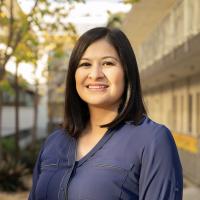
Amanda De Loera-Morales, is a licensed clinical social worker who has dedicated her career to working with the most vulnerable populations. She currently serves as the Director of Counseling and Psychological Services at CSULB where she practices from a culturally-based and trauma-informed lens in order to collaborate with communities in an effort to honor story and elevate their resilience. Her work in Japan, provided a centering of how tragedy can initiate advocacy to promote wellbeing. She understands the role that mental health plays within a student’s higher education journey and the need for equitable access to care so that students can achieve their goals.
Amanda’s mission throughout her career has been to create access to culturally responsive and inclusive spaces for young people to grow and thrive. As a result, Amanda is currently serving on the President’s Commission on the Status of Women and is committed to the Black Student Success Initiative. Amanda has also provided mentorship to new leaders committed to mission driven work.
Amanda received her Bachelors in English Literature with a Minor in Spanish Literature and a Masters in Social Welfare from UCLA. She has served on the board of a local domestic violence shelter and currently serves on the board of a non-profit arts organization that promotes wellness through the arts. Prior to her work at CSULB, Amanda led integrated mental health and housing programs in Los Angeles County.
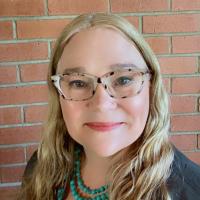
Michelle DeMars is an Associate Librarian and University Library faculty member at California State University, Long Beach. With nearly a decade of experience in higher education and academic librarianship, she is dedicated to empowering students to find and critically evaluate information and value diverse perspectives. Growing up in southern California as the daughter of first-generation American parents with a deep passion for education, Michelle’s work in information literacy reflects her belief in the transformative power of learning.
Michelle’s current research interests center on inclusivity in library services and spaces to foster equitable learning environments that promote student engagement for all learners. She designs inclusive learning environments and collects diverse library materials to meet the varied needs of the campus community. She prioritizes creating pathways for students to enable them to express their needs, feel empowered, and succeed.
Michelle’s leadership philosophy emphasizes collaborative and nurturing support, creating spaces where diversity and inclusivity thrive. She believes in fostering a culture of growth through mentorship, celebrating diverse perspectives, and encouraging professional development. Her empathetic approach to leadership is rooted in appreciating the unique experiences of others and building a community where all voices are valued. Aligned with the values championed in the Leadership Fellows Program, Michelle strives to create spaces that celebrate diversity, foster inclusivity, and empower individuals to contribute authentically, ensuring everyone feels a sense of belonging at CSULB.
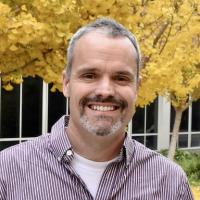
Dr. Jesse Dillon is a Professor and Chair in the Department of Biological Sciences and the Principal Investigator for Student Training for the Building Infrastructure Leading to Diversity (BUILD) research training program at California State University, Long Beach. Trained as a microbial ecologist, he has spent over two decades educating students about the essential, yet often invisible, biogeochemical roles played by the vast diversity of microorganisms living on Earth, with a focus on California’s bountiful, yet threatened coastal habitats.
Dr. Dillon’s commitment to equity and inclusion has been shaped by working with the diverse students at CSULB to prepare them to pursue careers in the biosciences. He works to overcome barriers to equitable education in STEM such as the persistence of rigor-focused ‘weed-out’ lecture courses, that derive from historically racist systems of learning. As a leader of the BUILD program, he and his colleagues help overcome these barriers by providing first generation and minoritized students with access to financial and psychosocial support paired with hands-on, high impact practices like mentored research.
In his leadership role as Department Chair, Dr. Dillon strives to apply an equity lens for addressing barriers to inclusion in the Biological Sciences and by working with his colleagues across the College of Natural Sciences & Mathematics as a founding member of the CNSM Diversity, Equity and Inclusiveness Committee. As an analytical, common-sense, consensus-building leader, he works to ensure transparency in practice and policy and listen to the unique and diverse viewpoints of faculty, staff and students to make decisions based on the collective good
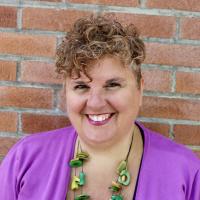
Dr. Chiara Ferrari serves as the Associate Dean for Faculty, Curriculum, and Instruction in the College of the Arts at CSULB. Before moving to Long Beach, she worked at Chico State for 16 years, serving as Director of Faculty Development from 2020 to 2023. Her leadership skills and experience center around faculty advocacy and engagement, shared governance and transparency in decision-making, and sustainable and equitable work environments and practices.
Dr. Ferrari promotes shared governance in policy and decision-making and ensures that all processes include intentional stakeholder engagement and iterative consultative processes, because is imperative that those affected by the outcomes of our decisions participate in the process of decision-making.
Her commitment to equity, diversity, inclusion, and antiracism is both ongoing and evolving, and built around the need to collaborate with and learn from others. Dr. Ferrari believes that while EDI is everyone’s individual responsibility, institutional efforts towards equity should never happen in isolation.
At its core, equity, diversity, and inclusion are based on two main principles: the ability to listen and the ability to create safe spaces of belonging for everyone. Dr. Ferrari approaches every collaboration with two goals in mind: the need to learn from (and listen to) students and colleagues whose experience in academia and life has been less privileged, and the necessity to create spaces where marginalized voices can not only be shared safely, but heard. Equity and inclusion do not just happen naturally: they must be built intentionally, honestly, and they need to be constantly protected and revisited.
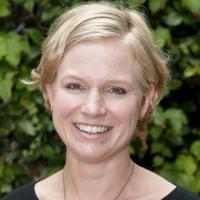
Virginia Gray is a Professor and Chair in the Department of Family and Consumer Sciences. She has devoted her career to community nutrition practice and research, most often with audiences experiencing food insecurity. She co-leads the CalFresh Healthy Living Program (SNAP-Education) in partnership with the Basic Needs program at CSULB, and conducts research on this novel program across the CSU system.
Virginia strongly values inclusivity as a leader, and seeks ways to invite in voices and foster curiosity for the perspectives of others. While she often observes a primacy of getting one’s ideas across in academic spaces, she hopes to move others to strike a balance between curious listening and voicing their own ideas. Virginia’s leadership in various CSULB programs focused on faculty and student mentoring taught her to prioritize belonging alongside equity. She has seen the beauty of diversifying academic spaces as a leader in student research programs, knowing that emerging scientists bring with them into their research careers not only their bright minds, but also the strengths of their diverse backgrounds. Often, those backgrounds emphasize group wellbeing over individualism, and she encourages students to see themselves as drivers of group culture. While equity-mindedness has long been at the core of her thinking in these mentoring spaces, she has learned that inclusion is the beauty that follows when people of all backgrounds are not only present, but feel a sense of belonging that promotes flourishing.
Virginia often thinks about a phrase she read in Fred Rogers’ memoir, commenting on how different the world would be if more people were striving to be helpful rather than important. In her work as a hopeful inclusive leader, she strives to help people of all backgrounds see themselves as important for who they are, which frees us all to do the work from a heart of contribution and service.
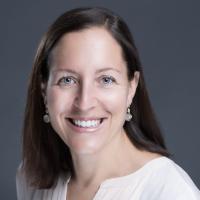
Lauren Heidbrink is an anthropologist and professor of human development at California State University, Long Beach. With advanced degrees in International Public Service Management and anthropology, Dr. Heidbrink has committed two decades to equity-driven research, mentorship, and policymaking. As a community-based researcher, she enlists research to advance policies and institutional practices on issues related to child migration and detention, the health of im/migrant communities in the U.S., and undocumented students’ access to higher education.
Dr. Heidbrink’s leadership philosophy is deeply rooted in the belief that higher education is a public good—one that should be accessible, inclusive, and transformative for all. Her vision is to reimagine higher education as a space where all students have the resources and support to thrive, where learning is an act of liberation, and where institutions are committed to dismantling systemic barriers. Thus, equity is not just an abstract concept; it is a guiding principle in how universities should develop policies, allocate resources, and create opportunities for growth. Dr. Heidbrink firmly believes that creativity, research, and community-building are critical to meeting the changing landscape of higher education.
Drawing on her experience as a former department chair, principal investigator of large multi-disciplinary and inter-institutional teams, board president of a transnational organization, and the founder and editor of a bilingual journal, she models an inclusive leadership style by fostering open and transparent communication, collaborating humbly and collegially, reflecting purposefully, and enacting informed decisions. An action-oriented leader, Dr. Heidbrink has enhanced university efforts to develop programs that provide equitable support for students of diverse backgrounds, identities, and perspectives. She recently partnered with the CSULB Dream Success Center to conduct a mixed-methods study on barriers for undocumented students in accessing research opportunities at CSULB. This university-wide study seeks to meaningfully shift university policy and departmental practices. As a result, in 2024, students awarded Dr. Heidbrink with the Fearless Campus Partner award recognizing her exceptional dedication and impact.
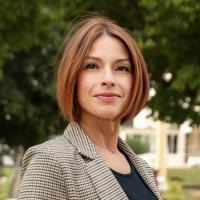
As a first-generation college student from rural East Texas, Dr. Kimberly R. Kelly's leadership approach aims to center belongingness. Dr. Kelly's road to her current roles as Professor and Chair in the Department of Human Development at CSULB was paved by dedicated mentors who created welcoming spaces within academia, igniting a passion to widen and diversify pathways for others. Working with CSULB students in teaching and research further strengthened her commitment to move beyond representation and access and strive toward disrupting unjust systems, processes, and practices through empowerment and strengths-based approaches.
Dr. Kelly's leadership approach is action-oriented, grounded in a commitment to critically assessing structures and systems to dismantle barriers to equity, inclusion, and access. In her roles as Internship Coordinator for the Department of Human Development and Faculty Lead for the College of Liberal Arts Internship Program, she conceptualized and implemented Internship Month, a four-week program to provide students with internship supports, reducing barriers to internship participation. She seeks to foster an environment where diverse voices are not only heard but are amplified in decision-making processes. As Principal Investigator for the Equity, Diversity, and Inclusion in CSULB High-Impact Practices (HIPs) project, she documented and amplified student voices regarding the barriers they face when participating in HIPs at CSULB in a research showcase to the President and Provost. Through inclusive dialogues and consensus-building, she aims to create a space where all students, faculty, and staff at CSULB can feel a profound sense of belonging and support.
Dr. Kelly's vision for an equitable academic environment involves inviting all perspectives into conversation and action, especially those historically marginalized, to co-create a campus that truly reflects and supports our diverse community. This equity-minded approach guides her daily work, reinforcing her commitment to empowering individuals and transforming institutional culture to better serve all members of the CSULB community and beyond.
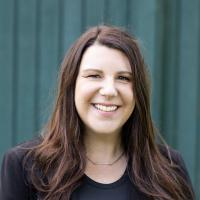
Jennifer Fuks (Moore) is a first-generation college graduate, receiving a Bachelor of Arts in Journalism with a minor in Communications from California State University, Long Beach. She currently serves as the Senior Director of Development for the College of Health & Human Services at CSULB. Her position allows her to bring together the voices of community, business and industry leaders, alumni, and other key stakeholders to strengthen philanthropic impact. By ensuring these perspectives help shape initiatives, she helps advance CSULB’s mission in ways that reflect and respect the diversity of the communities served.
Her 18 years of non-profit management has been integral in the way she approaches leadership and inclusivity. She strives to cultivate a network of donors, volunteers, mentors, and advocates who reflect the student body and local community. By involving representatives from a range of backgrounds, she believes we not only strengthen programs but also create a lasting support system that advances the educational and career success of all students served.
Her leadership approach centers on empathy, collaboration, and adaptability, empowering others to contribute meaningfully to a shared vision. With integrity and a commitment to inclusive advancement, she works to create strategies that inspire diverse engagement and sustained impact, believing wholeheartedly that the community’s strength lies in the voices we bring together to shape the future. She supports numerous non-profits in Southern California and currently serves as a Board of Director for the Tichenor Clinic in Long Beach. Leading by example is paramount to how she approaches all things in life.
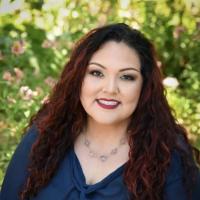
Danielle Muñoz-Channel, LMFT, is a dedicated advocate for inclusivity, accessibility, and mental wellness, particularly for marginalized communities. Currently, as the Director of Basic Needs at Cal State Long Beach, Danielle champions equity through food, housing, and financial education initiatives. Beyond affordability initiatives, Danielle also serves as co-chair for the President’s Commission on the Status of Women and serves on El Concilio for Latinx Success, actively promoting and creating inclusive spaces for historically minoritized communities. Danielle believes that centering lived experiences to intentionally build systems of care within universities are crucial for helping students complete their degrees in a timely manner and for developing a healthy future workforce.
In 2016 Danielle transitioned to higher education, developing programs addressing students’ holistic needs. She founded Sacramento State’s CARES Office to assist students in crisis and is nationally recognized for creating programs that reduce barriers and elevate the voices of underrepresented communities. Her work is rooted in collaboration, justice, and liberation.
Growing up as a Chicana on a predominantly white, male-dominated military base, she gained early insights into navigating environments with limited diversity and representation. These experiences shaped her leadership approach, emphasizing belonging, collaboration, and advocacy.
Looking to the future, Danielle is committed to championing initiatives for student parents, financial education, and trauma-informed classroom spaces. She holds a B.S. in Sociology from UC Davis and an M.S. in Marriage, Family, and Child Counseling from Sacramento State.
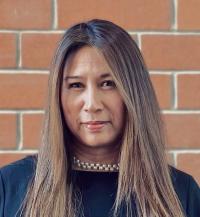
Alaine Ocampo is an Associate Professor in the Department of Speech-Language Pathology for the College of Health & Human Services with over 20 years of experience as a clinician for individuals with cognitive and communication disabilities. As a Filipina-American from a background as a first-generation student, she views equity-minded leadership through a critical lens framed by empathy and humility.
Alaine believes that the role of an equity-minded leader is multi-faceted and begins with humility. A humble leader is an advocate and fosters collaboration by valuing diverse perspectives.
She engages in equity work with deep passion and recognize the collective experiences and perspectives of faculty, staff, and students as valuable contributions that are essential in creating a campus environment that is conducive for everyone to thrive.
Alaine’s leadership approach and how she interacts with others closely aligns with how the Insights Discovery Profile described her personality as being a “Helping Inspirer” who contributes to team dynamics as being “encouraging and inclusive”.
Alaine feels that our individuality and experiences make up who we are and equip us with valuable contributions---and, thus, all should “have a seat at the table”.
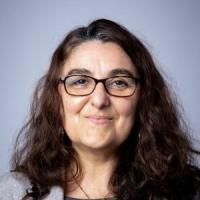
Dr. Sandra Pérez currently serves as the Director of the University Honors Program at CSULB. She is a Professor of Chicanx/Latinx Studies, who earned a B.A. in English and a second B.A. in Spanish from the University of San Diego and her PhD in Hispanic Languages and Literatures from UCLA. Her background as a first-generation college, high school, and middle school Latine PhD, make her particularly attuned to life experiences and the potential barriers for underserved students. As an equitable, caring, and creative leader in higher education with 25 years of experience, she has focused her career on helping students bridge to transformational opportunities.
In her various leadership roles, she has paid close attention to issues of access, equity, and inclusion to ensure there is a plurality of voices and people taken into consideration at the time of decision-making. She understands that vulnerable populations need to be protected from a human rights perspective, one where diverse backgrounds, abilities, beliefs, and uniqueness are understood as strengths. Among that plurality, she seeks to identify collective goals, alongside faculty and staff, in order to help students transform their lives.
In that collective pursuit, she seeks to listen to communal voices, support dialogue across political and ideological difference, and serve responsibly. Her energy, focus, and compassion lay with the people who she serves and are used to improve their lives, that of their families, and communities.
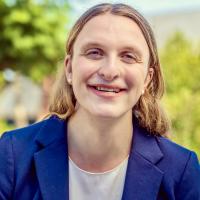
Dr. Kathryn J. Perkins is Chair and Associate Professor of Political Science at California State University, Long Beach. She received her B.A. in Sociology with minors in Political Science and Public Service from Abilene Christian University and holds an M.A. and Ph.D. in Political Science from the University of North Texas. Her research and teaching focus on American politics and public law, with an emphasis on the relationship between constitutional law and social change movements.
As a queer and first-generation college graduate who had early experiences with discrimination and challenges navigating the “hidden curriculum” of the academy, Dr. Perkins is dedicated to understanding and addressing institutional equity gaps in higher education so that all students can thrive while learning. Her leadership is driven by a commitment to build and advance systems that foster belonging and inclusion, value pluralism and see diversity as a strength, synthesize teaching and scholarship, and center respect for the unique perspectives and experiences of everyone in the community.
Dr. Perkins envisions leadership as service and advocates for the importance of shared governance to ensure that critical decisions are the result of deliberative and consensusbased processes that are inclusive of the many stakeholders on campus. To this end, she currently serves as Chair of the LGBTQIA+ Campus Climate Committee, on the President’s Commission on the Status of Women (PCSW), and as a faculty representative on the Advisory Committee to the Trustees for the selection of the next President of CSULB. In her role as Chair of Political Science, she recently spearheaded the establishment of a new peer-mentoring program, PoliSci Peers, that advances holistic student success by creating a sense of belonging and connecting students to vital campus resources. Her work was recognized with the 2022 Advancement of Women Award from the PCSW and the 2023 CSULB Early Academic Career Excellence Award and she is a proud member of Cohort VI of the President’s and Provosts Leadership Fellows Program.
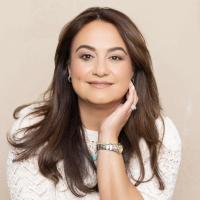
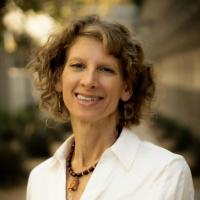
I’m a professor in the Department of Journalism and Public Relations and director of research for the College of Liberal Arts. My research on social exclusion in the information age is driven by a conviction that scholars are obligated to not only identify and critique inequities that exist for low-income Americans and people of color, but also to work toward eradicating these injustices. Currently, I’m the principal investigator on a National Science Foundation-funded project focused on the City of Long Beach’s vision to use data in ethical ways that avoid reinforcing existing racial biases and discriminatory decision-making. As faculty at a Hispanic-serving institution, I value the opportunity to teach—and learn from—students who grew up in underserved communities or who may be first in their families to attend college. I encourage students to share their own experiences, cultural values and beliefs. As a result, I often find myself re-examining my own assumptions. During my 8-year tenure serving on the City of Long Beach’s Technology & Innovation Commission, including serving as chair from 2018 until December 2022, I applied an “equity lens” when contributing to the development of Long Beach’s digital inclusion roadmap; to drafting of the City’s data privacy guidelines; and to creation of an equitable data collection toolkit for City staff. As a leader guided by the belief that social justice is an imperative, I am committed to fostering an environment where all voices are not just heard, but valued.
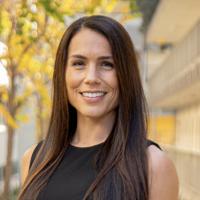
Dr. Kellie Walters is an Associate Professor in the Kinesiology Department and Co-Director for Student Success and Access in the College of Health and Human Services at California State University, Long Beach. She is a dynamic leader whose infectious enthusiasm and directed energy drive her commitment to equity and inclusion. She approaches leadership democratically, valuing collaboration and appreciating the contributions of others, while ensuring a fast, friendly, and inclusive pace to her work.
Dr. Walters’ vision for creating equitable environments is rooted in her belief that innovation and an open mind are necessities for systemic change. Her creativity and ability to see possibility inspire her efforts to advance social justice in higher education and the broader community. As co-creator and chair of the Kinesiology (KIN) Social Justice Committee, she fosters collaboration to address inequities and build inclusive policies, such as advocating for all-gender locker spaces. Her support for initiatives like the Black Student Achievement Initiative (BSAI) in Long Beach Unified School District reflects her outward focus on systemic impact.
Recognizing her own privileges as a white-passing, cisgender, able-bodied woman, Dr. Walters leverages her position to advocate for marginalized groups. Her passion for advancing students, staff, and faculty who have traditionally been under-resourced and marginalized empowers her to engage in challenging conversations and to involve diverse voices in decision-making.
With a “glass-half-full” outlook, Dr. Walters envisions a pipeline of equity-minded leaders who prioritize inclusivity and enact policies that benefit future generations. Her commitment to systemic change, paired with her energetic, innovative, and people-focused approach, ensures she remains a catalyst for progress in creating more just and equitable environments.





